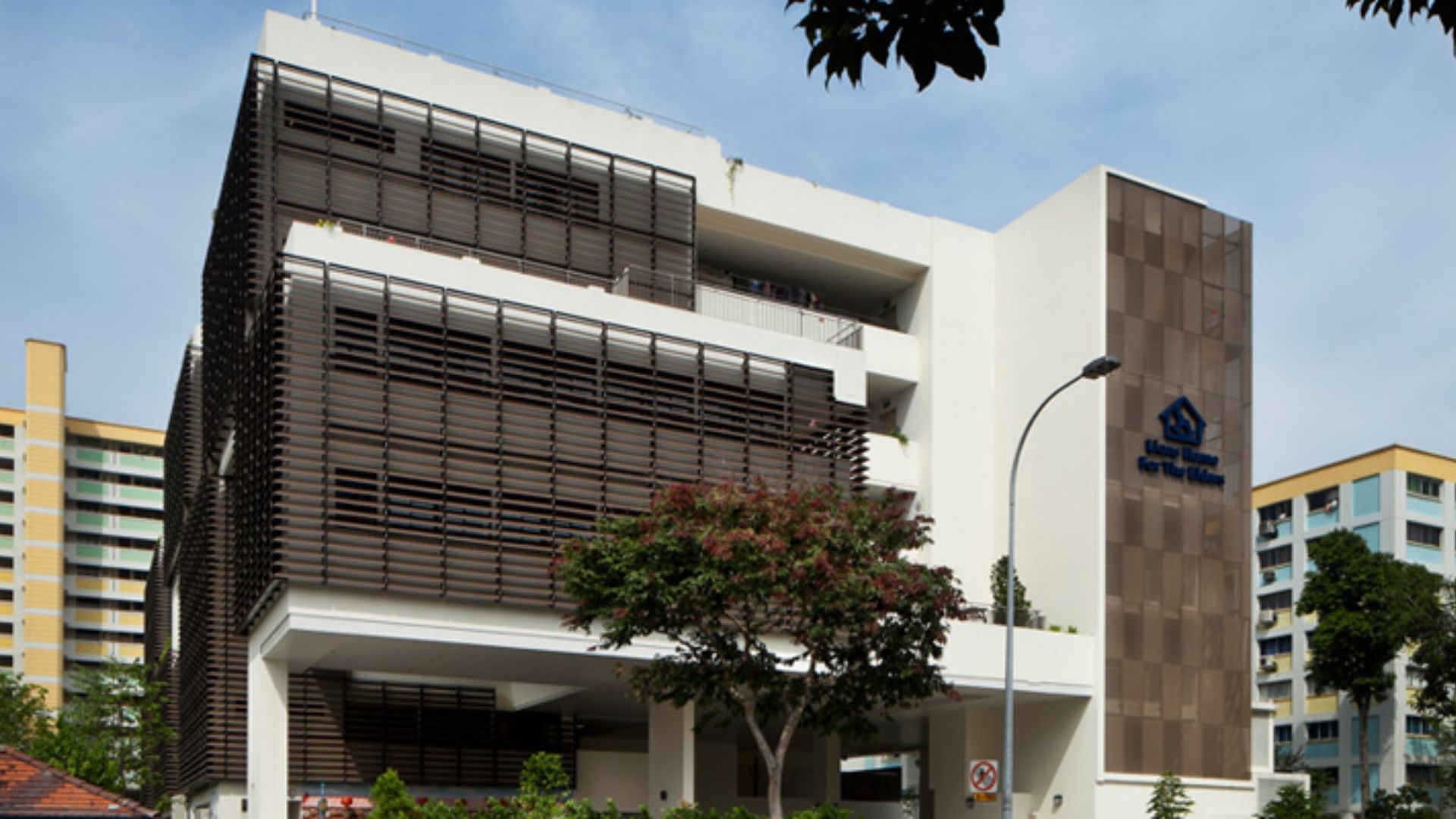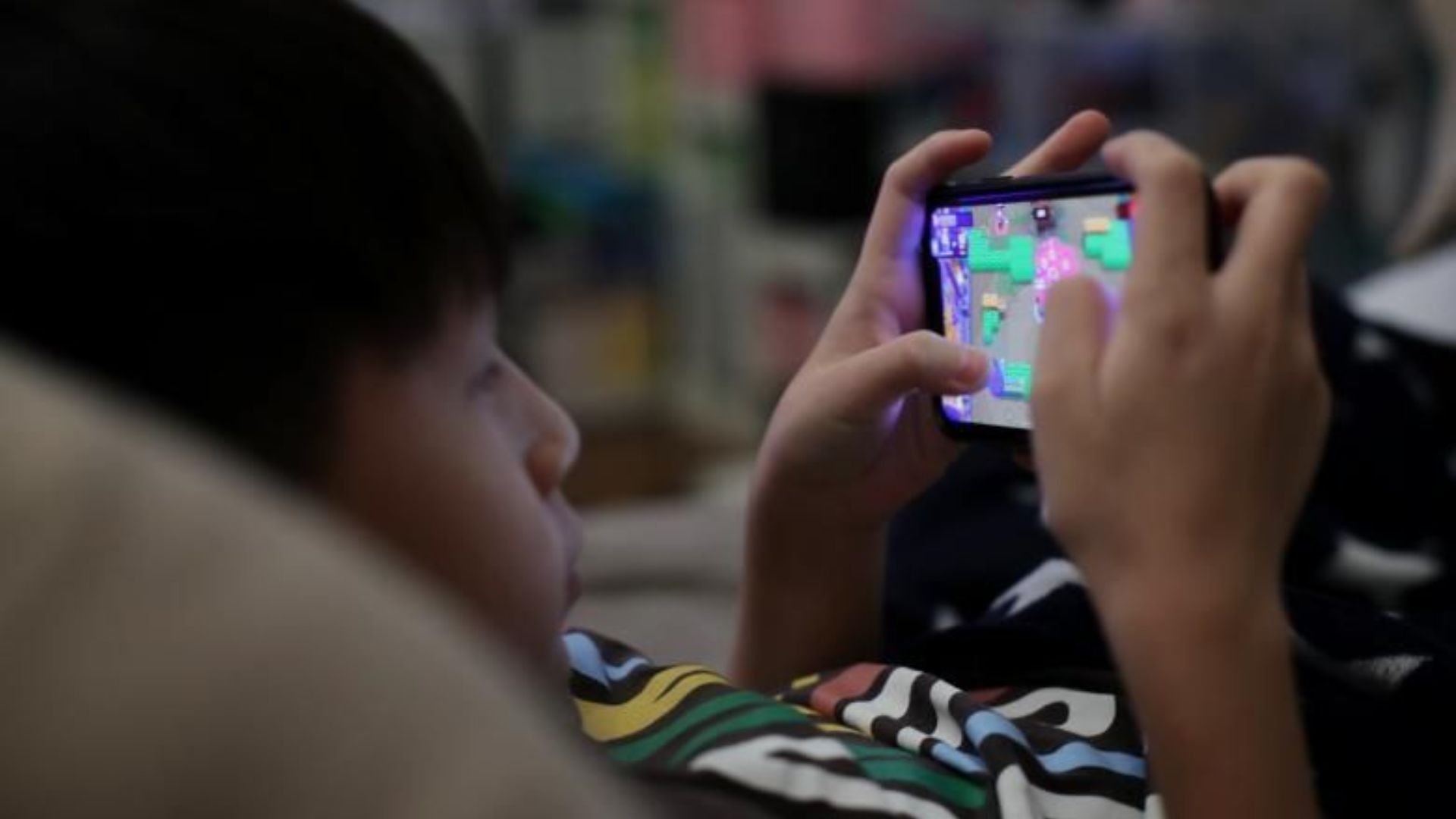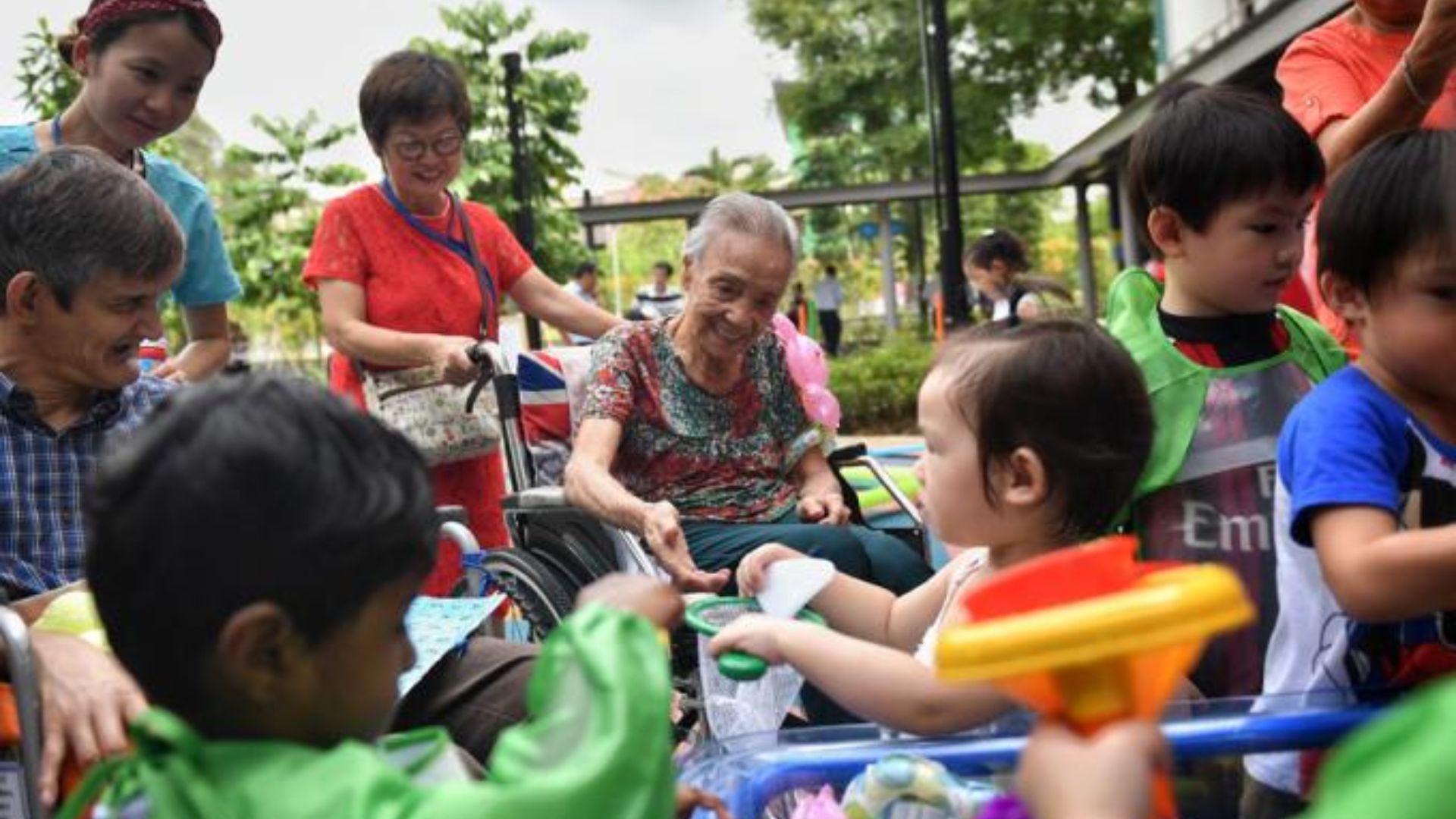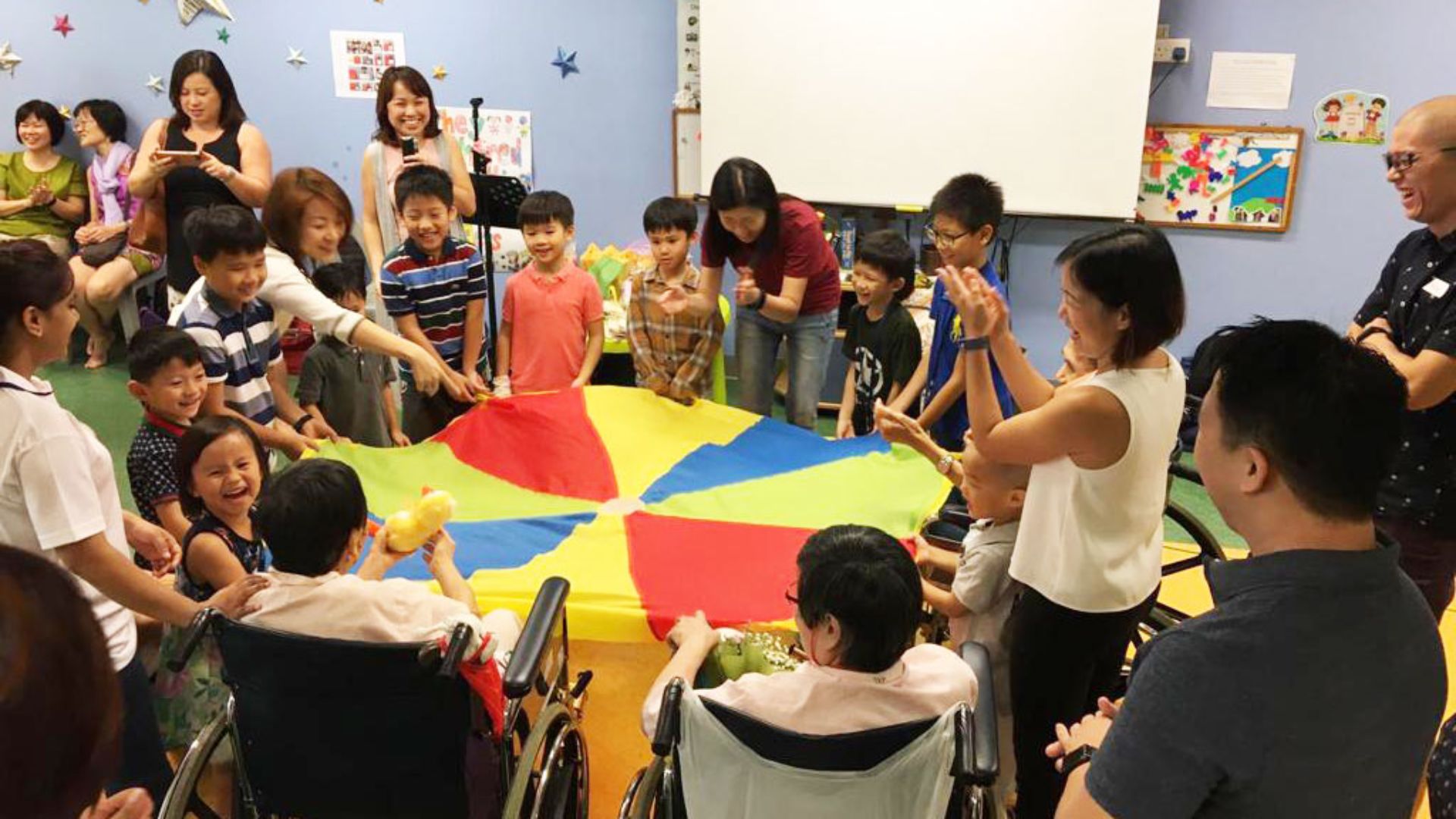For seniors to be able to age in place comfortably, the key is an inclusive neighbourhood.
Yet, just 10 years ago Singaporeans were fighting against this. They were adamant in not having a nursing home, a rehabilitation centre, an eldercare centre and even studio apartments for the elderly in their backyard.
In February 2012, residents of Blocks 860 and 861 in Woodlands Street 83 petitioned against having an eldercare centre in their void decks. In the same month, Toh Yi Drive residents objected to the building of studio apartments for the elderly in their neighbourhood.
For both cases, the Government, after considering the feedback, said construction would go ahead.
Then in May of the same year, about 40 people submitted a petition against plans for a 260-bed nursing home facing three blocks of flats on a football field at Bishan Street 13. Today, the Lions Home for the Elders sits on that spot.

About 130 residents in Jalan Batu also opposed plans for a rehabilitation centre to be situated in the void decks of Blocks 10 and 11. Even then Mountbatten MP Lim Biow Chuan told the contractors to stop work.
But in what appears to be a twist to the not-in-my-backyard syndrome, a group of 500 residents of Mountbatten, made up mostly of elderly folk including those who lived in the two blocks, fought back a month later against their neighbours’ opposition. They petitioned the Government to stick with its plans.
Today, St Hilda’s Community Services Centre is located there.
Eminent psychiatrist Kua Ee Heok, who co-wrote the book Ageing With Dignity: a 10-year Study on Positive Ageing and Dementia Prevention in Singapore, says multi-generational households are fast becoming less common here.
Speaking to TheHomeGround Asia, Prof Kua says, “You cannot expect a young Singaporean to understand ageing in place when he doesn’t live with his grandparents; or he himself is constantly holed up in his room, either engaged with his electronics or studies and whose professional parents work long hours and are hardly home.”
Prof Kua, who is also the Tan Geok Yin Professor in Psychiatry and Neuroscience at National University of Singapore (NUS), adds that such young people would generally have negative views of ageing and the elderly.
Changing mindsets and the narrative around the elderly
In a 2014 questionnaire study of 3,000 older Singaporeans, it was found that although 7 in 10 felt that seniors were respected, discrimination does exist—especially towards working older people.

The study also found that older people with lower educational levels are more likely to hold negative views of the young. They feel uncomfortable conversing with younger people – reflecting the large generational differences in educational levels typical of rapidly advancing societies.
Medical Director of Clinical Affairs at the Tsao Foundation Raymond Leong says the younger people need to recognise that older persons have preferences and aspirations too.
“In addition to meeting their bio-psycho-social needs, (we need to ask) how can we add meaningful life to their years? What gives them joy? How can families and the community benefit from their strengths, experience and knowledge?” Dr Leong says.
A social anthropologist with the department of Japanese studies at the National University of Singapore (NUS) Thang Leng Leng agrees.
She says whenever studies are conducted among younger Singaporeans on what they think filial piety is, and how they would express it, the most common reply is “employ a foreign helper to take care of elderly grandparents and parents”.
“There is this great divide here between emotional care and instrumental care. Many adult children feel they have done enough just by arranging and coordinating care that they deemed is needed by elderly parents,” she adds.
Director of the Department of Ageing in Ohio, the United States (US) Ursel J. McElroy said in an April podcast episode of McKinsey on Healthcare that the one thing everyone has in common “is that we will all age” so ageing should not be seen as a burden, rather it should be viewed as an “opportunity to live a dignified life”.
And studies have shown that intergenerational programmes (IGP) are valuable tools to promote just that.
A team of nurses in Singapore, through a descriptive qualitative study, found that participating in IGP provided seniors an opportunity for active engagement in the society.
Titled Older adults’ perspective of intergenerational programmes at senior day care centres in Singapore: A descriptive qualitative study, it illustrated the dynamic social interaction between the older adults and the younger generation.
The study suggests that this continuity of integration empowers seniors, and removes obstacles and barriers that exclude or discriminate against them. With a well-planned and structured IGP, significant physical, emotional and psychosocial outcomes could benefit the older adults and the younger generation.
The study was published in peer review journal Wiley in September 2020.
Dr Leong says, “When we change the narrative around older persons, and start seeing them for who they are, we interact and engage them positively and that brings a domino effect of benefits — to the older person, the family and caregivers, and the community.”
Ageing well with help from the very young
According to Prof Kua, “it only takes a small child to make most elderly people smile”.
So it is no wonder the twinning of childcare centres with nursing homes for the elderly in Europe works wonders. It not only boosts children’s literacy and communication skills, it also results in the elderly being less lonely and depressed.
The first IGP did not start in Europe but dates back to 1976 in Japan when pioneer Shimada Masaharu merged a nursery school and senior care home into a single shared facility in Edogawa Ward, Tokyo.
This IGP was met with booming success and a 2013 Japanese study even showed socialisation between the young and the old within shared intergenerational facilities increased smiles and conversational efforts among the elderly.

With proven results, St Joseph’s Home in Singapore launched its intergenerational playground, infant and childcare centre on its premises in 2017. Its success prompted the Government to co-locate childcare and eldercare facilities in new housing developments, with the first at Kampung Admiralty in Woodlands.
Launched by Prime Minister Lee Hsien Loong in 2018, the 11-storey Kampung Admiralty is the first HDB project to co-locate child care and senior centres in one integrated development to encourage intergenerational bonding.
The latest intergenerational facility is at the newly opened St John’s-St Margaret’s Village (SJSM Village), a complex comprising St John’s-St Margaret’s Nursing Home, St Andrew’s Senior Care (Dover), Little Seeds Preschool (St John’s-St Margaret’s), and St John’s-St Margaret’s Church.

At the opening, the Right Reverend Dr Titus Chung, bishop of the Anglican Diocese in Singapore, said, “The cross-generational nature of the facility echoes the same character of Singapore society. It is our hope that it will inspire others to build such facilities in future.”
Prof Kua adds that with the dearth of the three generational families, such intergenerational projects will forge better understanding between the young and the old, narrowing the proverbial generation gap.
RELATED: Housing the elderly in the community: The options to help them age in place
Join the conversations on TheHomeGround Asia’s Facebook and Instagram, and get the latest updates via Telegram.














